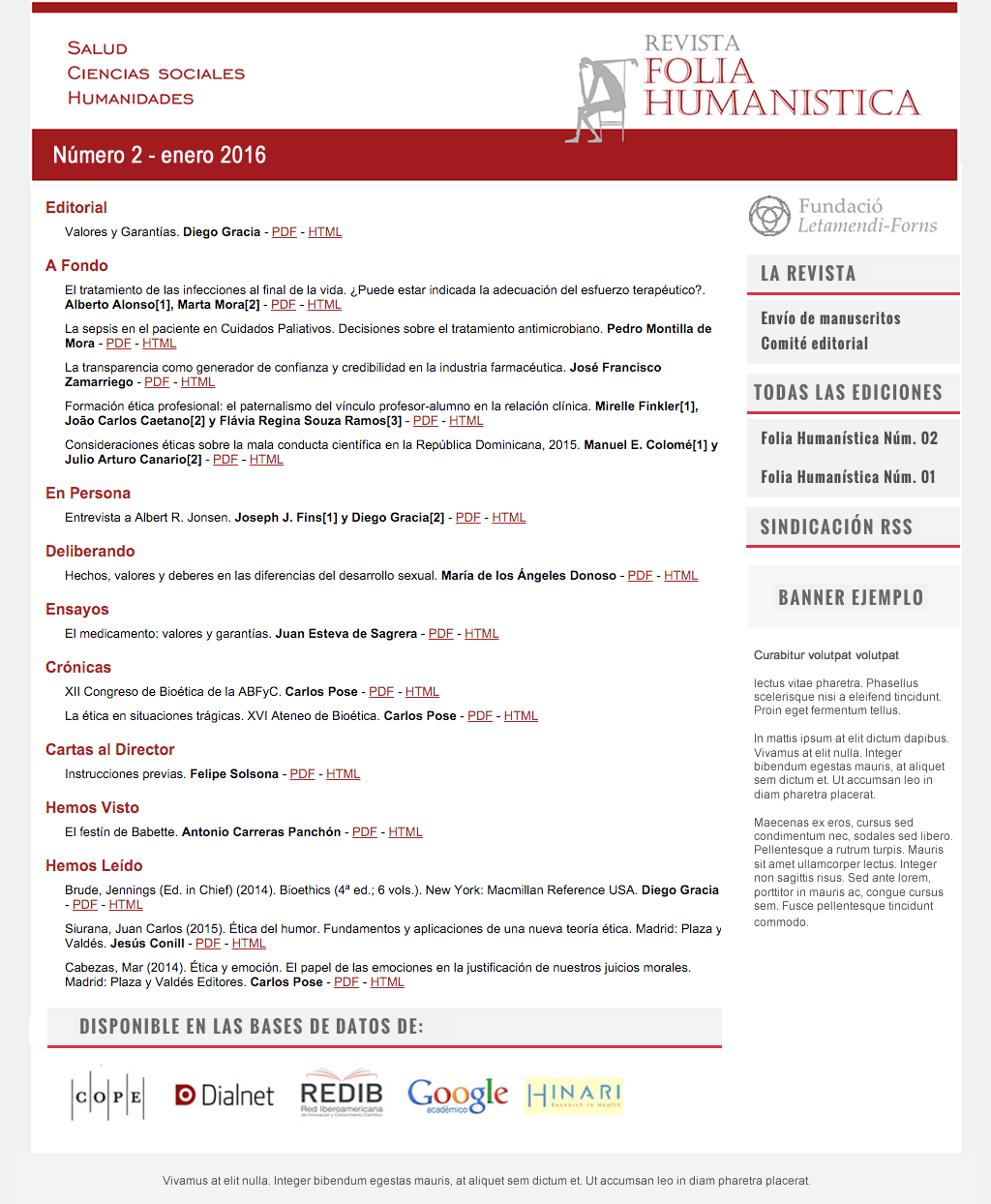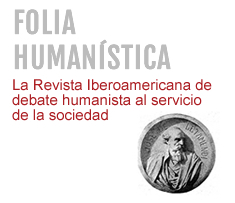Conflicto de intereses en la Investigación Biomédica
DOI:
https://doi.org/10.30860/0089Keywords:
Conflict of interests, Biomedical research, Pharmaceutical industryAbstract
CONFLICT OF INTERESTS IN BIOMEDICAL RESEARCH
Biomedical research in recent years is fundamentally financed by the pharmaceutical industry. This dependence modifies the relations between the centers, the research teams, and the companies in the sector, creating conditions for the proliferation of conflicts of interest and their potential negative consequences for sick people and for health systems. In this context, the interests and motivations of the researchers have a relevant role: identifying possible conflicts and their potential negative consequences and knowing the preventive procedures when the mere declaration of the conflict is not enough is essential. In this sense, ensuring respect for the ethical principles of veracity, reliability, responsibility and integrity should be a premise of the scientific community, with the commitment of the research centers to promote and guarantee that these are fulfilled. The declaration of the conflict of interest is a first step and should be a procedure required of all researchers, not only by scientific journals, but also by the steering committees of research centers.
References
Thompson DF. Understanding financial conflicts of interest. N Engl J Med. 1993; 329: 573-6.
Committee on Assessing Integrity in Research Environments. National Research Council. Institute of Medicine. Integrity in Scientific Research. Creating an Environment That Promotes Responsible Conduct. Washington, National Academic Press, 2002.
Johnston, J, Brumbaugh, B. Conflict of Interest in Biomedical Research and Clinical Practice. Hastings Center Bioethics Briefings. June 3, 2022 https://www.thehastingscenter.org/briefingbook/conflict-of-interest-in-biomedical-research/
Conflict of Interest Theme Issue. JAMA 2017; 317(17):1705-1812.
Asociación Médica Mundial. Declaración sobre Conflicto de Intereses. Nueva Delhi 2009. https://www.wma.net/es/policies-post/declaracion-de-la-amm-sobre-conflictos-de-intereses/
Grup de Recerca en Humans. Qüestions sobre la Recerca Biomèdica: ¿Què n’ha de saber el ciutadà? Barcelona, Comitè de Bioètica de Catalunya, 2015. https://canalsalut.gencat.cat/web/.content/Sistema_de_salut/CBC/recursos/documents_tematica/guia_recerca_llarga.pdf
Irwin, R.S. The Role of Conflict of Interest in Reporting Scientific Information. CHEST 2009; 136: 253-259.
Holden C. The undisclosed background of a paper on a depression treatment. Science 2006; 313:598–599.
Dadhich, J.P. Tackling Conflict of Interest and Misconduct in Biomedical Research. INDIAN PEDIATRICS 2012; 49: 527-531.
Ross JS, Hill KP, Egilman DS, Krumholz HM. Guest authorship and ghost writing in publications related to rofecoxib: a case study of industry documents from rofecoxib litigation. JAMA 2008; 299:1800-1812.
The Lancet, NEJM retract controversial COVID-19 studies based on Surgisphere data. Retraction Watch, 5 de junio de 2020. https://retractionwatch.com/2020/06/04/lancet-retracts-controversial-hydroxychloroquine-study/
Spanish drug editor wins case brought by Merck, Sharp & Dohme. BMJ 2004; 328: 307. https://doi.org/10.1136/bmj.328.7435.307-b
Angell M. Industry-sponsored clinical research: a broken system. JAMA 2008; 300:1069–1071.
Purdy, S, Little, M, Mayes, C, Lipworth, W. Debates about Conflict of Interest in Medicine: Deconstructing a Divided Discourse. Bioethical Inquiry 2017; 14: 135–149.
Kingdom, W. Pharmaism. Medical Writing 2013; 22: 262–263.
Corboy, J. The relationship between physicians and Pharma: Playing the devil’s advocate. Neurology Clinical Practice 2014; 4: 161–163.
Citrome, L., J. Karagianis, G. Maguire, and A. Nierenberg. Pharmaism: A tale of two perspectives. International Journal of Clinical Practice 2014; 68: 659–661.
Rosenbaun, L. Understanding bias—The case for careful study. N Eng J Med 2015; 372: 1959–1963.
Barton, D., T. Stossel, and L. Stell. After 20 years, industry critics bury skeptics, despite empirical vacuum. International. Journal of Clinical Practice 2014; 68: 666–673.
Real Decreto 1090/2015, de 4 de diciembre, por el que se regulan los ensayos clínicos con medicamentos, los Comités de Ética de la Investigación con medicamentos y el Registro Español de Estudios Clínicos. https://www.boe.es/eli/es/rd/2015/12/04/1090
WHO. International Clinical Trials Registry Platform. https://www.who.int/clinical-trials-registry-platform/clinical-trials-in-children
European Medical Agency. Clinical Trials in The European Union. https://euclinicaltrials.eu/home
REGULATION (EU) No 536/2014 OF THE EUROPEAN PARLIAMENT AND OF THE COUNCIL of 16 April 2014 on clinical trials on medicinal products for human use, and repealing Directive 2001/20/EC. https://eur-lex.europa.eu/legal-content/EN/TXT/?uri=celex%3A32014R0536
Guia de Bones Pràctiques en Recerca en Ciències de la Salut. Institut d’Investigació de Recerca Biomèdica de Bellvitge (IDIBELL) 29/10/19.
https://idibell.cat/wp-content/uploads/2020/07/IDI-DOC-045.v02-GBP-IDIBELL.pdf
Code of Good Practice in Research. Universitat Autonoma de Barcelona. https://www.uab.cat/doc/codeofgoodpractice.pdf
Declaration of Interest Form. Institut d’Investigació de Recerca Biomèdica de Bellvitge (IDIBELL). https://docs.google.com/document/d/1OkpAyNnZ_QOgNIzrnJiLpkT8uwNPjf_Z/edit
Committee on Publication Ethics. About COPE: http://publicationethics.org/about.
Committee on Publication Ethics. COPE flowcharts:http://publicationethics.org/flowcharts
Hickie, I.B., N.L. Rogers. Novel melatonin-based therapies: Potential advances in the treatment of major depression. The Lancet. 2011; 378: 621–631. https://pubmed.ncbi.nlm.nih.gov/21596429/
Mayes C, Lipworth W, Kerridge I. Declarations, accusations and judgement: examining conflict of interest discourses as performative speech-acts. Med Health Care and Philos 2016; 19:455–462.
Austin JL. Como hacer cosas con palabras. Barcelona, Paidós, 1971.
Downloads
Published
How to Cite
Issue
Section
License
Copyright (c) 2022 prueba

This work is licensed under a Creative Commons Attribution-NonCommercial-ShareAlike 4.0 International License.
La Revista Folia Humanística se adhiere a Creative Common en la modalidad: Reconocimiento – NoComercial – CompartirIgual (by-nc-sa): No se permite un uso comercial de la obra original ni de las posibles obras derivadas, la distribución de las cuales se debe hacer con una licencia igual a la que regula la obra original.








